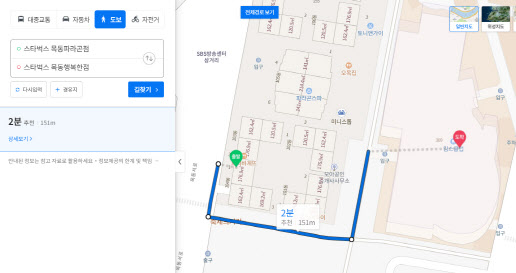|
Starbucks chooses voluntary discrimination
According to the industry on the 9th, the strategy for Starbucks Coffee Korea to continue opening stores in a short distance centered on stores is referred to as a cluster method. After opening a base store in the core commercial district, the store will continue to be opened closely around it. In the beginning, because goodwill overlapped between stores, it was an industry evaluation that it was a waste of openings, but it was a mistake. Starbucks Coffee Korea ranked first in sales in the domestic coffee industry, and this’examination of the commercial sector’ is regarded as the number one contributor.
This is a strategy that was possible thanks to Starbucks’ insistence on direct business. This is because it is impossible to open a store in a short distance if you have a franchise type of franchise business. The Act on Fairness of Franchise Business Transactions (Affiliate Business Act) guarantees’prohibition of unfair business area infringement’ in Article 12 4. Goodwill is arbitrarily set for each company, and violations are punished with corrective actions and fines. Although the opening distance standard has been explicitly abolished, short-distance opening is still not free.
The difference is revealed when compared to Ediya Coffee, which has the largest number of stores in Korea. There are 18 Starbucks in Yeouido, Yeongdeungpo-gu, Seoul, but only 8 outlets for Ediya Coffee. Ediya Coffee has 2,651 stores nationwide, 1143 more than Starbucks (1508), but there are no more stores in core commercial districts. Of course, the direct management of the store has the advantage that the head office has to bear the rent more than the franchise, but it is free to open the store.
The surface reason that Starbucks Korea insists on direct management is’the dimension to maintain quality’. However, not all of Global Starbucks adhere to direct management. According to Starbucks, some stores in Japan and the United States are also operated as affiliates. It has been adapted in a way that discriminates against business in consideration of Korean characteristics.
Regarding this, an official in the coffee franchise industry said, “Even though fixed costs such as labor and rental fees are large for a direct business, it is not only quality that Starbucks bears.” .
|
◇ Distribution price subject to involuntary reverse discrimination
If Starbucks voluntarily chooses to differentiate, there is involuntary reverse discrimination in the retail industry. Currently, hypermarkets and complex shopping malls are scheduled to receive or receive restrictions on opening and opening hours. However, foreign-affiliated distributors bypass these restrictions and are considered as regulations mainly concentrated on domestic companies.
Swedish furniture company IKEA is a representative example. Since entering Korea in 2014, IKEA has never closed its stores due to mandatory closure. Under the Distribution Industry Development Act, the head of a local government may designate business hours or mandatory holidays for hypermarkets and semi-large-scale stores. In addition, in order to open a store near a traditional market, it must go through difficult conditions such as analyzing the impact of the commercial district. Since IKEA is classified as a furniture specialty store, not a hypermarket, it is open anytime and opens anywhere.
The interpretation is that IKEA sells only furniture, while hypermarkets sell furniture. Restaurants in IKEA are also open year-round, but hypermarket restaurants are closed. Shinsegae Group Vice Chairman Jeong Yong-jin mentioned that “Ikea should also take a rest” at the opening ceremony of Starfield Goyang in 2017 is an expression of reverse discrimination.
Such reverse discrimination is contrary to the purpose of the system. In addition to the purpose of protecting small business owners, the reason why the law enforces hypermarket business hours and compulsory closure is also great to protect workers’ health rights. The same is true of the process of discussions to add complex shopping malls, department stores, and duty-free stores to the subject of regulation. The main reason is the need to reduce the intensity of labor. The discussion about working without days off as workers at IKEA is not ripe.
I don’t want IKEA regulation
The industry demands that the way to resolve reverse discrimination is not to’regulate all together’, but to’not regulate all together’. There is also a trend to loosen regulations in foreign countries. France, which has strong distribution regulations, has abolished and expanded its ban on Sunday business. Japan has restricted the opening and sales of large-scale stores, such as large supermarkets, but it has been abolished since 2000. In the US, there are no opening and sales regulations at all.
Discussions taking place in Korea are focused on strengthening regulations. Currently, there are 15 amendments to the Distribution Industry Development Act pending in the National Assembly. It includes the addition of complex shopping malls, department stores, duty-free shops, etc. to the target, making opening and sales more demanding. The 21 amendments to the Affiliate Business Act mainly emphasize the role and responsibilities of the headquarters in protecting franchisees.
Yoo Hwan-ik, head of the Corporate Policy Division of the Federation of Korean Entrepreneurs, said, “There is room for redesigning the domestic distribution policy in consideration of the trend of easing distribution regulations in major overseas countries to overcome the economic crisis.


